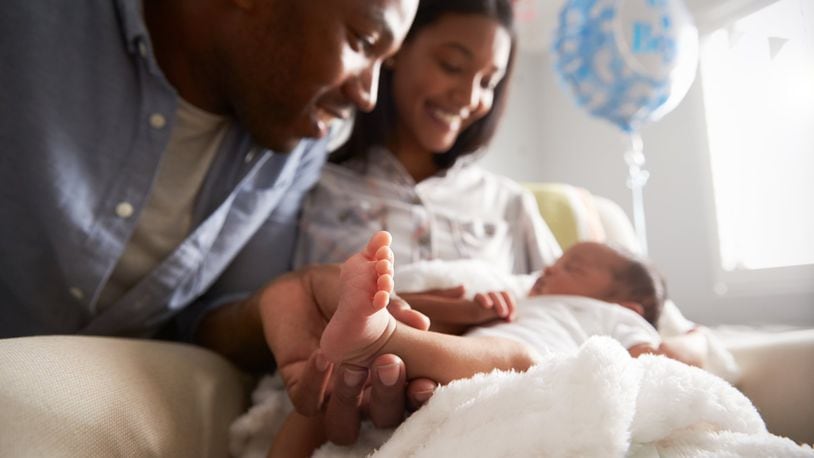“There’s no timeframe engraved in stone, but I recommend a year to many of my patients,” said J. Scott Bembry, MD, an OB/Gyn with Premier OB/Gyn in Springboro. “There is so much that goes into a pregnancy and birth, and a woman needs to give her body enough time to restore itself.”
A woman’s body gives a lot to her developing baby during pregnancy, and the baby’s subsequent birth can deplete a woman’s body of calcium, iron, and nutrients — not to mention decreasing her blood count. Many of these minerals and nutrients take time to restore after the baby is born especially if she has chosen to breastfeed her baby, Dr. Bembry said.
“The healing process we’re talking about goes beyond basic nutrients and minerals to include the organs and muscles needed to help another baby grow inside her womb,” said Dr. Bembry, who practices with Premier Physician Network. “A woman’s uterus needs time to return to its previous size and her pelvic muscles need to be restored to their normal tone.”
Women who undergo a cesarean birth have an additional reason not to rush into another pregnancy.
“A woman who has had a C-section and then conceives soon after runs a higher risk of the placenta not properly implanting or it may adhere to a scarred area of her uterus,” Dr. Bembry said. “There is a maturation process that takes place after surgery that can take six months to a year for tissue to heal.”
Dr. Bembry said there are several other factors a woman may want to consider when deciding when to conceive her next child.
Bonding with baby: It's important to allow enough time to bond with the baby that was just born before choosing to introduce another child into the family. Discuss your desire to grow your family with your partner and make sure you are on the same page.
Time for breastfeeding: Breastfeeding is a wonderful opportunity to provide babies with the nutrients they need as well as a way to create a time of bonding with mom. It also can require extra nutrients and energy from a mom's body. Consider how long you desire to breastfeed your baby and consider waiting until you are done to conceive your next child.
The right rest period: Fluctuating hormones can cause unsteady emotions after birth. Allow your body time to emotionally heal. Don't discount the toll a new pregnancy can take on the everyday challenges of taking care of an infant. A lack of sleep and the demands of caring for a baby — especially if it is the first — can create added stress.
Proper planning: Women should work with their physician to determine a birth control plan while they are still pregnant. Be aware that breastfeeding is not a means of birth control. Women can choose certain IUDs or progesterone-only birth control pills, both of which don't interfere with breastmilk production, Dr. Bembry said.
In the first year post-partum, at least 70 percent of pregnancies are unintended, according to the American Congress of Obstetricians and Gynecology (ACOG). Taking steps to extend the amount of time between pregnancies is important since research has shown that short-interval pregnancies are at a higher risk for preterm delivery and adverse neonatal outcomes, the ACOG said.
For more information on pregnancy or to find a Premier Physician Network physician near you, visit www.PremierPhysicianNet.com.
About the Author
